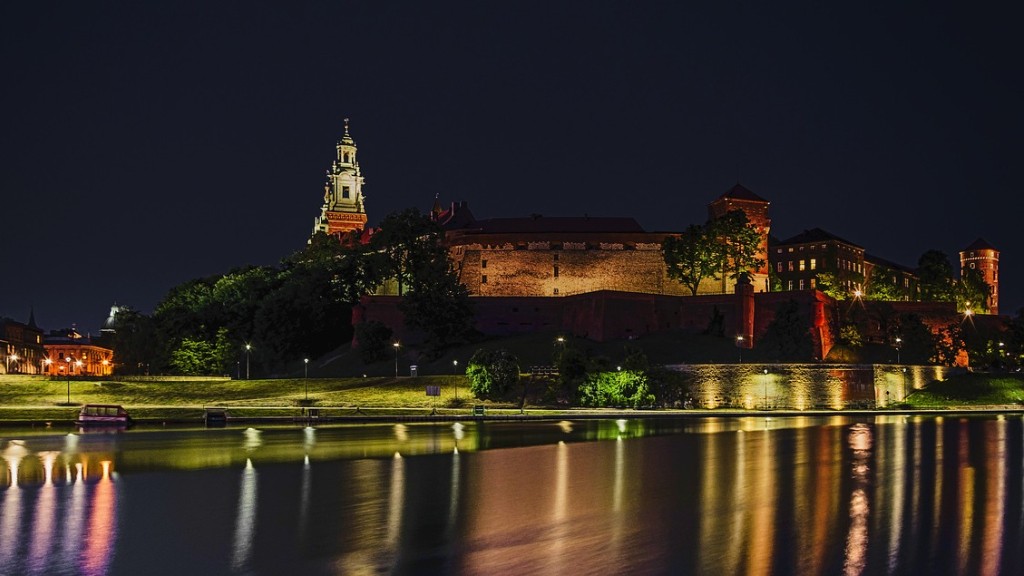Background Information
Poland is a European country located on the Baltic Sea and bordered by Germany, the Czech Republic, Slovakia, Ukraine, Belarus, Lithuania, and the Russian enclave of Kaliningrad. The requirements for a Poland visa depend on the purpose of visit, length of stay, nationality, and several other factors. Any visitor wishing to enter the country must have the appropriate travel document and have sufficient funds with them to support their stay. In some cases, visitors may also need to prove that their visit is lawful and not a threat to public policy or security.
Types of Poland Visas
The type of visa needed to enter Poland depends on the purpose of the visit. There are different types of visas, including short-stay, multiple-entry, transit, and long-term stay. Short-stay visas are valid for up to 90 days, while multiple-entry visas are valid for multiple entries to the country. Long-term visas are issued to those who intend to stay in Poland for more than three months.
Required Documents for Poland Visa Application
In addition to a valid passport or travel document, applicants must submit certain documents to apply for a Poland visa, depending on the type of visa they are applying for. Generally, the following documents are required:
- A valid passport or travel document
- A fully completed and signed application form
- Adapter passport photos
- Proof of sufficient funds to cover the duration of stay in Poland
- Letter of invitation from a host in Poland (if applicable)
- Proof of travel arrangements and health insurance
- Receipt from payment of visa application fee
- Additional documents may be required for certain types of visas, such as business visas, study visas, research visas, and employment visas.
Application Process for Poland Visa
The process of applying for a Poland visa typically starts with the submission of an online application form. This form can also be completed in person at the nearest diplomatic mission or consulate in the applicant’s home country. Once the form is completed, the applicant must submit the required documents, including the passport or travel document, photographs, and supporting documents, depending on the type of visa applied for.
The visa application fee must be paid and the visa processing fee has to be paid to the diplomatic mission or consulate. The visa processing time depends on the type of application and the issuing authority. Once the application is reviewed, the applicant will be notified of the decision via post or email.
Extra Requirements for Certain Categories
Applicants must also prove that they can support themselves while in Poland. Those applying for long-term visas may need to provide proof of medical insurance, employment contract, and bank account details. Additionally, students may need to provide evidence of enrolment in an educational institution, while business travellers may need to submit evidence of their business activities in Poland.
Document Verification
All documents submitted as part of the Poland visa application must be verified for authenticity. This is done through an interview at the diplomatic mission or consulate. The interview must be conducted in Polish and applicants may be asked to produce additional documents. If the applicant is successful, they will receive an entry visa from the diplomatic mission or consulate allowing them to enter the country.
Visa Extension Process
In some cases, it may be necessary to extend a Poland visa to stay in the country for a longer period. An application for a visa extension must be made at least two weeks before the visa expires. During the extension process, applicants may also need to provide additional documents and information, such as proof of financial means, evidence of accommodation, and details of the purpose of stay.
Visa Requirements for Different Nationalities
The requirements and processes for applying for a Poland visa vary depending on the applicant’s nationality. For example, citizens of the European Union, Iceland, Liechtenstein, Norway, and Switzerland are exempt from visa requirements and can stay in Poland for up to three months. However, nationals of other countries may be required to obtain a visa before entering the country.
Appeal Process
In the event that a Poland visa application is rejected, applicants can appeal the decision to the Voivode (regional governor) with jurisdiction over the applicant’s place of residence. This appeal must be submitted within seven days of the decision and must be accompanied by new evidence to support the application. If the appeal is successful, the Voivode may grant a one-time stay of up to six months.
Application for Re-entry to Poland
If a person leaves Poland but wishes to return, they must obtain a re-entry visa before entering the country. This type of visa is only valid for one year. To apply for a re-entry visa, applicants must provide their passport or travel document, the application form, two passport photos, and proof of sufficient funds for their stay in Poland.
Visa Processing Fees
The application fee for a Poland visa varies depending on the type of visa. In general, short-term visas (90 days) cost EUR60, multiple-entry visas cost EUR90, and long-term visas cost EUR100, plus the visa processing fee. This processing fee must also be paid to the diplomatic mission or consulate in the applicant’s home country. All fees are subject to change depending on the circumstances.
Conclusion
Applying for a Poland visa can be a complex and time-consuming process. However, it is important to ensure that all the necessary documents and information are provided to the relevant embassy or consulate to ensure that the visa application is successful. It is also important to remember that the requirements and processes vary depending on the type and length of visa required, as well as the applicant’s nationality. Understanding the requirements and following the correct procedures for applying for a Poland visa is essential for a successful application.



